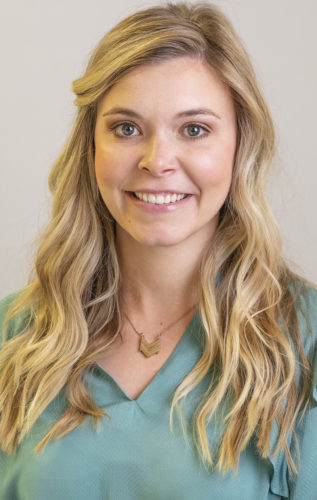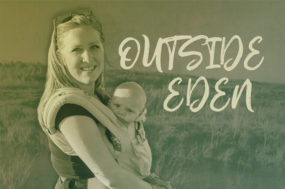Yep, you guessed it: depreciation.
A few months ago, I attended the Driftless Region Beef Conference in Dubuque, Iowa, where much of the discussion was on profitability. And, with that, came that D-word again.
Unfortunately, in this business we know there are a lot of things that depreciate, and a lot of them are needed to operate. Burke Teichert, a popular speaker and ranch consultant, encouraged attendees to take a close look at their depreciable assets.
“If it rusts, rots or depreciates, we want to own as little of it as possible,” he cautioned. “A wise uncle of mine once said, ‘Everything you own owns you,’ and he couldn’t be more right.” Which would you prefer to own, things that depreciate or appreciate?
We don’t talk much about appreciation, do we? Perhaps that is because there isn’t a lot of “stuff” that does. Well-managed land, livestock (if bred cows are sold before they get very old for a nice premium) and people are all things Teichert said can and should appreciate. But the one I want to focus on is people.
While we may not own people, Teichert pointed out that “we own part of their time.” Anything a farm manager or owner can do to facilitate and reward lifelong learning will help those people become more valuable to themselves as well as the operation. They will bring new and better ideas and become more efficient in their responsibilities, he said.
I think back four years ago when I attended my first ag conference as an editor. I was in a room of mostly academics greasing their wheels on pasture management. Scientific terms such as apical meristems and rhizomes bounced around the room, and I was overwhelmed. My introductory course in plant science in college had not prepared me for that (or, at least that I could recall).
That wouldn’t be the last time I felt that way. Those first few years, my colleagues immersed me in just about everything the forage and beef industry had to offer. While some of these experiences turned out to be articles for you all, some of them were pure investments in me and my knowledge.
Likewise, I have talked to a number of producers who have handed over the management of a pasture, field or group of cows to a son or daughter who has interest in staying in the family business. While it would certainly be easier, and perhaps more profitable, for that parent to decide what is planted or what breed of bull to buy, they understand the long-term value in allowing the next generation to make those decisions.
Profitability in agriculture may ride on uncontrollable factors such as markets and weather, but there are still a few things within your control. Reducing depreciation or spreading it across more units of production is certainly one place to start. The other, Teichert said, is “to create an environment where people want to excel and then provide tools and training to accomplish that.” ![]()

-
Cassidy Woolsey
- Editor
- Progressive Forage
- Email Cassidy Woolsey
Yep, you guessed it: depreciation.
A few months ago, I attended the Driftless Region Beef Conference in Dubuque, Iowa, where much of the discussion was on profitability. And, with that, came that D-word again.
Unfortunately, in this business we know there are a lot of things that depreciate, and a lot of them are needed to operate. Burke Teichert, a popular speaker and ranch consultant, encouraged attendees to take a close look at their depreciable assets.
“If it rusts, rots or depreciates, we want to own as little of it as possible,” he cautioned. “A wise uncle of mine once said, ‘Everything you own owns you,’ and he couldn’t be more right.” Which would you prefer to own, things that depreciate or appreciate?
We don’t talk much about appreciation, do we? Perhaps that is because there isn’t a lot of “stuff” that does. Well-managed land, livestock (if bred cows are sold before they get very old for a nice premium) and people are all things Teichert said can and should appreciate. But the one I want to focus on is people.
While we may not own people, Teichert pointed out that “we own part of their time.” Anything a farm manager or owner can do to facilitate and reward lifelong learning will help those people become more valuable to themselves as well as the operation. They will bring new and better ideas and become more efficient in their responsibilities, he said.
I think back four years ago when I attended my first ag conference as an editor. I was in a room of mostly academics greasing their wheels on pasture management. Scientific terms such as apical meristems and rhizomes bounced around the room, and I was overwhelmed. My introductory course in plant science in college had not prepared me for that (or, at least that I could recall).
That wouldn’t be the last time I felt that way. Those first few years, my colleagues immersed me in just about everything the forage and beef industry had to offer. While some of these experiences turned out to be articles for you all, some of them were pure investments in me and my knowledge.
Likewise, I have talked to a number of producers who have handed over the management of a pasture, field or group of cows to a son or daughter who has interest in staying in the family business. While it would certainly be easier, and perhaps more profitable, for that parent to decide what is planted or what breed of bull to buy, they understand the long-term value in allowing the next generation to make those decisions.
Profitability in agriculture may ride on uncontrollable factors such as markets and weather, but there are still a few things within your control. Reducing depreciation or spreading it across more units of production is certainly one place to start. The other, Teichert said, is “to create an environment where people want to excel and then provide tools and training to accomplish that.” ![]()

-
Cassidy Woolsey
- Editor
- Progressive Forage
- Email Cassidy Woolsey










